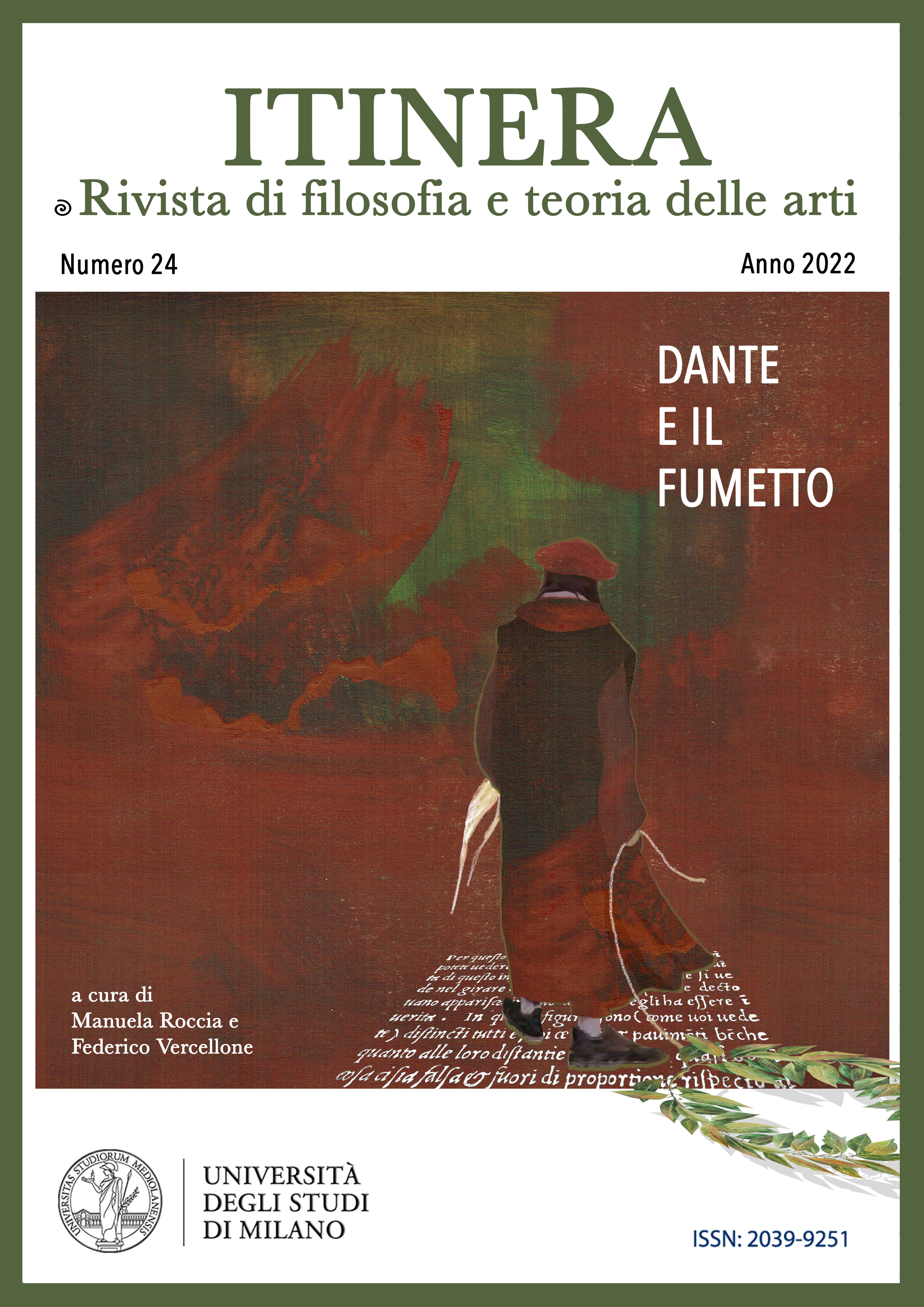Interpreting Magnolia through Badiou’s Axiomatic Judgment: The Visitation of the Idea that Humanity is Love
DOI:
https://doi.org/10.54103/2039-9251/19758Parole chiave:
Badiou, Magnolia, axiomatic judgment, philosophy of cinema, impure art.Abstract
Alain Badiou’s interpretation of Paul Thomas Anderson’s film Magnolia is a paradigmatic example of his peculiar procedure of cinematic analysis called axiomatic judgment. According to the axiomatic judgment, to read a film is to inquire into the effects it has on thought. This essay reconstructs Badiou’s analysis of Magnolia to show how various cinematic elements—acting style, montage, music, and biblical references—are combined to arrange the visitation of a precise idea: that love is the fundamental precondition for humanity’s existence. Without love, the only experience of the world would be monadic. Examining Badiou’s interpretation of Magnolia does not simply aid our understanding of the film; it also clarifies Badiou’s theories of cinema and love.
Downloads
Riferimenti bibliografici
Books and Journal Articles
Anderson, P. T, Magnolia: The Shooting Script, Newmarket Press, New York 2000, 2004.
Badiou, A., N Manifesto for Philosophy, . Madarasz (transl. by), State University of New York, Albany 1999.
- Handbook of Inaesthetics, trans. by A. Toscano, Stanford University Press, Stanford, 2004.
- What is Love, in S. Corcoran (transl. by) Conditions, Continuum, London 2008, pp. 179-199.
- In Praise of Love, with N. Truong, Serpent’s Tail, London 2012.
- The False Movements of Cinema, in A. de Baecque (ed. by) and S. Spitzer (trans. by) Cinema, Polity Press, Cambridge 2013, pp. 88-94.
- Can a Film be Spoken About?, in A. de Baecque (ed. by) and S. Spitzer (trans. by) Cinema, Polity Press, Cambridge 2013, pp. 94-100.
- ‘Say Yes To Love, or Else Be Lonely’: Magnolia, in A. de Baecque (ed. by) and S. Spitzer (trans. by) Cinema, Polity Press, Cambridge 2013, pp.176-193.
- Cinema as Philosophical Experimentation, in A. de Baecque (ed. by) and S. Spitzer (trans. by) Cinema, Polity Press, Cambridge 2013, pp. 202-233.
Bianchi, P., and Besana, B., Cinema, in S. Corcoran (ed. by) The Badiou Dictionary, Edinburgh University Press, Edinburgh 2015, pp. 54-60.
Burchill, L., Love, in S. Corcoran (ed. by) The Badiou Dictionary, Edinburgh University Press, Edinburgh 2015, pp. 185-189.
Congdon, D., Reconsidering Apocalyptic Cinema: Pauline Apocalyptic and Paul Thomas Anderson, in “Journal of Religion and Popular Culture”, XXIV/3, 2012, pp. 405-418.
Jöttkandt, S., Love, in A.J. Bartlett and J. Adam (ed. by) Alain Badiou: Key Concepts, Acumen, Durham 2010, pp. 73-82.
Lévy, D., Badiou, l’art et le cinéma, in “Revue Appareil”, XI, 2010.
Ling, A., Badiou and Cinema, Edinburgh University Press, Edinburgh, 2011.
Mullarkey, J., Inaesthetics, in E. Branigan and W. Buckland (ed. by), The Routledge Encyclopedia of Film Theory, Routledge, London, 2014, pp. 263-267.
Sperb, J., Blossoms and Blood: Postmodern Media Culture and the Films of Paul Thomas Anderson. University of Texas Press, Austin, 2013.
Slowik, M., Isolation and Connection: Unbounded Sound in the Films of Paul Thomas Anderson, in “New Review of Film and Television Studies”, XIII/2, 2015, pp. 149-169.
Wilkins, K., ‘This, Please, Cannot Be That’: The Constructed World of P. T. Anderson in Magnolia, in “Sydney Studies in English” XXXXII/1, 2016, pp. 59-85.
News or Magazine Articles
Bradshaw, P., Magnolia, in “The Guardian”, March 03, 2000.
Ebert, R., Magnolia, January 07, 2000 (Accessed May 20, 2022) https://www.rogerebert.com/reviews/magnolia-2000
Feeney, F. X., This is Your Life, in “LA Weekly”, December 15, 1999.
Maslin, J., Entangled Lives on the Cusp of the Millennium, in “New York Times”, December 17, 1999.
Worthmann, M., Das junge Gericht, in “Die Zeit”, April 13, 2000; Trans. By L. Gineprini.
Dowloads
Pubblicato
Come citare
Fascicolo
Sezione
Licenza
Gli autori che pubblicano su questa rivista accettano le seguenti condizioni:
1. Gli autori mantengono i diritti sulla loro opera e cedono alla rivista il diritto di prima pubblicazione dell'opera, contemporaneamente licenziata sotto una Licenza Creative Commons - Attribuzione - Condividi allo stesso modo 4.0 internazionale che permette ad altri di condividere l'opera indicando la paternità intellettuale e la prima pubblicazione su questa rivista.
2. Gli autori possono aderire ad altri accordi di licenza non esclusiva per la distribuzione della versione dell'opera pubblicata (es. depositarla in un archivio istituzionale o pubblicarla in una monografia), a patto di indicare che la prima pubblicazione è avvenuta su questa rivista.
3. Gli autori possono diffondere la loro opera online (es. in repository istituzionali o nel loro sito web) prima e durante il processo di submission, poiché può portare a scambi produttivi e aumentare le citazioni dell'opera pubblicata (Vedi The Effect of Open Access).





